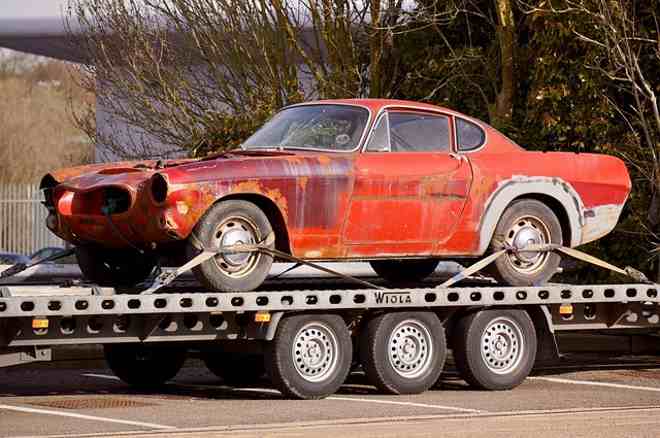Second-Hand Car Options: A Look at What’s Being Researched by Today’s Drivers
Buying a second-hand car can be a practical choice for those looking to save on costs while still getting reliable transportation. This article explores what people are considering when shopping for used vehicles, from condition checks and service history to financing and long-term value.

What are the essential things to check before buying a used car?
When it comes to purchasing a pre-owned vehicle, thorough inspection is crucial. Prospective buyers are researching the importance of conducting a comprehensive visual check of the car’s exterior and interior. This includes examining the body for signs of damage or repairs, inspecting the tires for wear, and assessing the overall condition of the upholstery and dashboard.
Additionally, buyers are learning about the significance of taking the car for a test drive to evaluate its performance, handling, and any potential issues with the engine, transmission, or brakes. Many are also seeking professional opinions by having the vehicle inspected by a trusted mechanic before making a purchase decision.
How can buyers effectively review a car’s service history?
One of the most critical aspects of used car research is understanding how to review and interpret a vehicle’s service history. Savvy buyers are learning to request and carefully examine service records, looking for regular maintenance, timely repairs, and any recurring issues.
They’re also discovering the importance of cross-referencing the service history with the car’s mileage to ensure consistency and identify any potential discrepancies. Many are utilizing online resources and vehicle history report services to obtain detailed information about past accidents, ownership changes, and maintenance records.
What features do buyers typically look for in second-hand vehicles?
Today’s used car shoppers are prioritizing a combination of practicality, comfort, and modern amenities in their search. Fuel efficiency remains a top concern, especially given the fluctuating fuel prices in India. Many buyers are researching vehicles with good mileage and those that are easy to maintain.
Safety features are also high on the list, with buyers looking for cars equipped with airbags, ABS, and electronic stability control. Additionally, there’s growing interest in vehicles with modern infotainment systems, Bluetooth connectivity, and smartphone integration capabilities, as these features add value and convenience to the driving experience.
What are the pros and cons of used cars compared to new cars?
Drivers considering second-hand vehicles are weighing the advantages and disadvantages against purchasing a new car. The primary benefit of opting for a used car is the significant cost savings, as pre-owned vehicles are generally much less expensive than their new counterparts.
However, buyers are also aware of potential drawbacks, such as higher maintenance costs and the lack of warranty coverage for older models. They’re researching the long-term value proposition, considering factors like depreciation rates, insurance costs, and potential resale value when comparing used and new car options.
When should buyers consider certified pre-owned options?
Certified pre-owned (CPO) programs are gaining popularity among used car shoppers in India. These programs offer a middle ground between new and traditional used cars, providing additional peace of mind through manufacturer-backed warranties and rigorous inspection processes.
Buyers are researching when CPO options make the most sense, typically considering them for relatively newer models (usually less than 5-6 years old) with lower mileage. They’re also comparing the costs and benefits of CPO vehicles against both new cars and non-certified used options to determine the best value for their budget and needs.
How do financing options differ for used cars in India?
| Lender | Interest Rate Range | Loan Term | Key Features |
|---|---|---|---|
| HDFC Bank | 9.00% - 11.50% | Up to 7 years | Quick approval, flexible EMI options |
| SBI | 9.20% - 10.50% | Up to 7 years | No foreclosure charges, minimal documentation |
| ICICI Bank | 9.30% - 11.50% | Up to 7 years | Online application, doorstep service |
| Axis Bank | 9.55% - 11.25% | Up to 5 years | Pre-approved offers, competitive rates |
| Kotak Mahindra Bank | 9.75% - 11.50% | Up to 5 years | Digital loan process, instant approval |
Prices, rates, or cost estimates mentioned in this article are based on the latest available information but may change over time. Independent research is advised before making financial decisions.
Financing a used car often differs from new car loans, and buyers are researching these distinctions. Generally, interest rates for used car loans are slightly higher than those for new cars. However, the overall cost of financing can still be lower due to the reduced purchase price of pre-owned vehicles.
Buyers are exploring various lender options, including banks, non-banking financial companies (NBFCs), and manufacturer-affiliated finance programs. They’re comparing factors such as interest rates, loan terms, processing fees, and prepayment options to find the most suitable financing solution for their used car purchase.
In conclusion, today’s drivers are conducting thorough research when considering second-hand car options. From meticulous vehicle inspections and service history reviews to weighing the pros and cons against new cars and exploring financing alternatives, buyers are approaching the used car market with increased knowledge and discernment. This trend towards informed decision-making is shaping the pre-owned vehicle landscape in India, leading to more satisfying and value-driven purchases for consumers.




